#Trump
Why Did Trump Propose a 100-Percent Tariff on Mexican Auto Imports?
Earlier this week, Donald Trump suggested that he would impose a 100 percent tariff on select automobiles manufactured in Mexico — sending the industry into a minor tizzy.
Having done some digging into the matter, Trump only appears to be targeting Chinese vehicles being manufactured south of the border. The statement was made during the “Buckeye Values PAC” rally in Dayton, Ohio, and comes after Chinese automaker BYD announced plans to build a production facility in Mexico. While most of the resulting vehicles are assumed to be electric, BYD has stated its intention is not to sell them within the United States.
UAW Predictably Endorses Biden for President
Despite trying to stay away from politicians during last year’s labor strike, United Auto Workers’ leadership endorsed Joe Biden for president on Wednesday. This comes after union-head Shawn Fain said UAW dealings with domestic automakers would not be undermined by those seeking to garner political support. Now, Fain is backing Biden on claims that his administration supports the American workforce.
UAW Seeking Friends in Washington DC, Threatens to Withhold Biden Support
UAW leadership headed to Washington last week to drum up support from politicians as it engages in contract negotiations with Detroit-based automakers. While this has often been the status quo for the union, UAW President Shawn Fain has suggested the government would help ensure a fair deal with the automotive industry.
While union leadership has opted to meet with the usual roster of Democrats, it has said it would withhold support of Joe Biden’s reelection campaign if it didn’t think the White House would be offering the kind of help it needs.
How Much Are Updated CAFE Standards Actually Going to Save You?
With the United States Department of Transportation having formally announced upgraded Corporate Average Fuel Economy (CAFE) standards starting in 2024, the Biden administration was quick to point out that the decision would likely make automobiles even more expensive than they already are. However, the caveat to this was that it also assumed fuel prices would come down as improved efficiencies reduced North America’s hunger for fuel.
This effectively undoes fueling rollbacks instituted under the Trump administration on the grounds of reducing costs to consumers and cutting regulatory red tape for a prospective future where fuel prices are reduced without the need to spur oil production. But what does that actually mean in terms of dollars and cents?
U.S. EPA Readies Strictest Vehicle Emission Requirements Ever
We’ve got good news for people who want fewer choices in the type of cars they’ll be able to purchase in the future.
The U.S. Environmental Protection Agency (EPA) has finalized strict new vehicle emissions requirements through 2026 that would reverse the current standards set by the agency under former President Donald Trump. The Trump administration rolled back some of the long-term environmental policies implemented under the Obama administration. However, the Biden administration has said its biggest focus will be on addressing climate issues by dissolving those policies restoring the targets established when Barack Obama was still in the White House. The agency released some proposals in August outlining the general path it would be taking. But the details dropped by EPA Administrator Michael Regan on Monday vastly exceed those Obama metrics serving as a benchmark.
Correct: Honda Says Senate Tying EV Subsidies to Unions Discriminatory
Despite regulatory efforts often being praised as essential for elevating standards and promoting safety, they’re also an excellent way to funnel money and favors between political and corporate entities in plain sight. This dichotomy is particularly glaring in regard to environmental restrictions, which frequently favor businesses that are wealthy enough to afford to adhere to them and subsidies that effectively reroute tax funding to support various industries.
Considering this, it’s fairly rare to see bigger businesses griping about government assistance. But that’s exactly what Honda is doing with a proposal in Congress seeking to provide additional EV subsidies to consumers that buy vehicles manufactured by union-backed plants. The manufacturer has stated it believes the Clean Energy for America Act is discriminatory by favoring specific automakers and will ultimately restrict the choices available to consumers – which is true.
Biden Fuel Rules Unveiled, Will Exceed Obama's Goals
The Biden administration is proposing a return to the Obama-era fuel-economy regulations over five years.
After that, the rules will get tougher, with the goal of getting 40 percent of American drivers into electric vehicles.
Brother of Top Biden Adviser Lobbied for General Motors
Washington, D.C. has long been thought of as a “swamp” of shady dealings, regardless of what party is in charge of the White House and/or Congress at any given time.
The previous president even promised to “drain the swamp,” though his critics would argue he made it swampier than ever.
Gas War: Biden Suspends Oil Drilling Leases in Alaska
On Tuesday, the Biden administration announced it would be suspending oil and gas leases issued in Alaska’s Arctic National Wildlife Refuge during the last days of the Trump administration. Bent on maintaining the United State’s energy independence, Donald Trump had moved to expand fossil fuel development in ways that would have been at odds with predecessor Barack Obama. But today’s White House represents a return to form, with an interest in supplanting traditional energy concerns with what it believes will be greener alternatives.
It’s bad news for the Alaskan state government, which had hoped to devote a subset of the region to rebuilding its oil industry by taking advantage of its vast reserves. But environmentalists and a subset of tribal representatives have praised the decision to prohibit development on protected lands. We expect consumers will have conflicting opinions, based largely upon how much they’re willing to pay at the pump.
Tesla Demands Return to Obama Fueling Restrictions, Reasons Obvious
Tesla is demanding the reinstatement of a 2016 Obama regulation that more than doubles penalties for manufacturers who fail to adhere to fuel efficiency requirements. Gee, I wonder why it would do such a thing.
While focusing on the environment is an admirable endeavor, much of the discussion surrounding environmentalism on the corporate level really skirts around the periphery of Scamville. Elon Musk is no fool and understands that the more stringent regulations are enacted against his competitors, the more desperate they will be to buy up Tesla’s mountain of carbon credits. With a little help from the government, electric-vehicle companies can effectively bankrupt their more-traditional rivals while earning a nice payday for themselves. In fact, Tesla has only managed to become a profitable company because of this practice.
Auto Lobbyists Attempt to Soften USMCA, Look to White House [UPDATED]
Lobbyists are reportedly seeking to soften the United States-Mexico-Canada Agreement (USMCA) now that there are some new faces in the White House. Signed in 2018, revised in 2019, and effective since 2020, the USMCA sought to restore North America’s manufacturing base with new content requirements and place the United States in a more favorable position than it held under the North American Free Trade Agreement. But industry groups are now claiming that interpretations from government agencies are gumming up the works, and accusing the U.S. of having a different interpretation from what the other nations had originally agreed upon.
“[The USCMA interpretation makes] meeting the … content provisions that much more difficult for everyone to achieve,” stated David Adams, president of Global Automakers of Canada.
White House Briefly Mentions Fixing Our Horrible Roads
On Thursday, President Joe Biden spent part of his day listening to a group of lawmakers discuss how much the United States might need to spend on fixing its horrible infrastructure. It’s an issue America has neglected through multiple administrations and has frequently been set back by partisan conflict.
Considering the White House is ruminating on how to source trillions of dollars in new infrastructure spending after the U.S. just printed $9 trillion (almost 25 percent all USD currently in circulation) for COVID relief, that’s unlikely to change. Everyone is worried about raising taxes and causing inflation during a period of economic uncertainty, or skeptical that the government will use the new funding responsibly. But our roads (among other infrastructure projects) are reaching a point where they can no longer be ignored, placing the entire country in a particularly sour pickle.
California Moves to Ban Sale of New Gas Cars by 2035
California governor Gavin Newsom has signed an executive order that will ban the sale of new cars that are gasoline-powered, beginning in the year 2035.
“This is the most impactful step our state can take to fight climate change,” Newsom said in a statement. “For too many decades, we have allowed cars to pollute the air that our children and families breathe. You deserve to have a car that doesn’t give your kids asthma… Cars shouldn’t melt glaciers or raise sea levels threatening our cherished beaches and coastlines.”
Trump Offers Credits for Companies That Bring Back American Factory Jobs, Tariffs for the Rest
Keen to sweep as much attention away from the 2020 Democratic National Convention as possible, President Donald Trump campaigned in Old Forge, PA while Joe Biden accepted the Democratic nomination at a largely virtual event. You’ll be forgiven for not having watched either, as both amounted to little more than bashing the opposing side with nary a hint of actual policy. But Trump came the closest to offering something truly substantive, reiterating threats to companies to bring factory jobs back to the U.S. or suffer the consequences.
The president insisted that manufacturers would soon find themselves in a situation that benefits America whether they complied or not. “We will give tax credits to companies to bring jobs back to America, and if they don’t do it, we will put tariffs on those companies, and they will have to pay us a lot of money,” Trump said during the event.
Goodyear Caught in Political Crossfire, Nationwide Boycott
Goodyear found itself in a hornet’s nest this week, following a leaked diversity training slideshow that included a ban on Make America Great Again (MAGA) attire and sentiments. Incoming Goodyear employees at its plant in Topeka, Kansas, were allegedly warned about inappropriate political displays.
While “Black Lives Matter” and “Lesbian, Gay, Bisexual, Transgender Pride” were considered acceptable, “Blue Lives Matter,” “All Lives Matter,” “MAGA Attire” and “Political Affiliated Slogans or Material” were listed in the unacceptable section.
The leak quickly garnered ire from President Trump as it circulated around the internet, who used social media to effectively support the preexisting campaign to boycott the company’s tires — adding that he would make sure Goodyear rubber is removed from the presidential limousine, posthaste. As you might have expected, this kicked up a media storm that brought more attention to the boycott Goodyear never wanted, while also placing it the center of a political fracas.



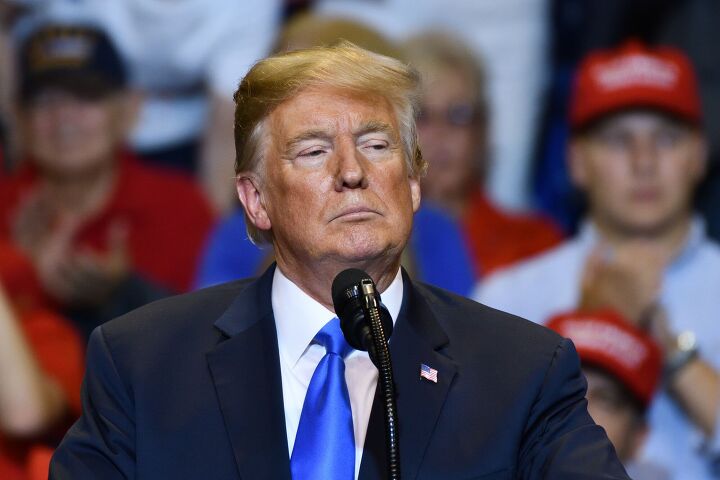
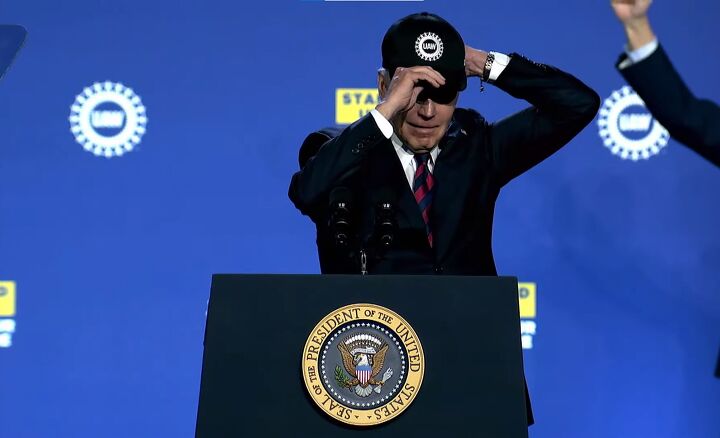

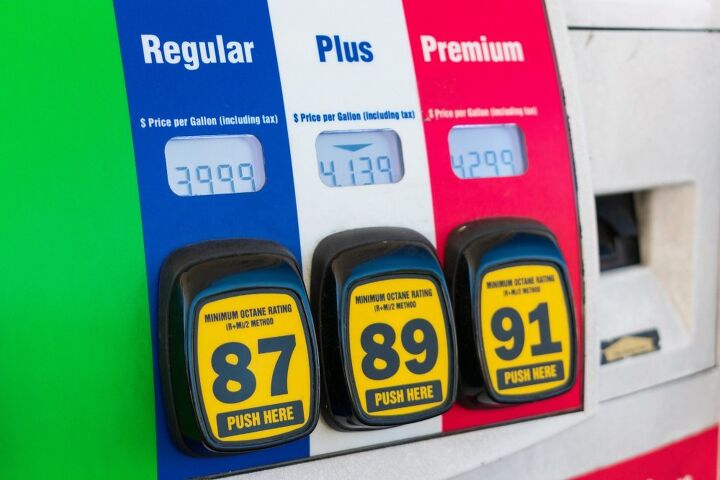

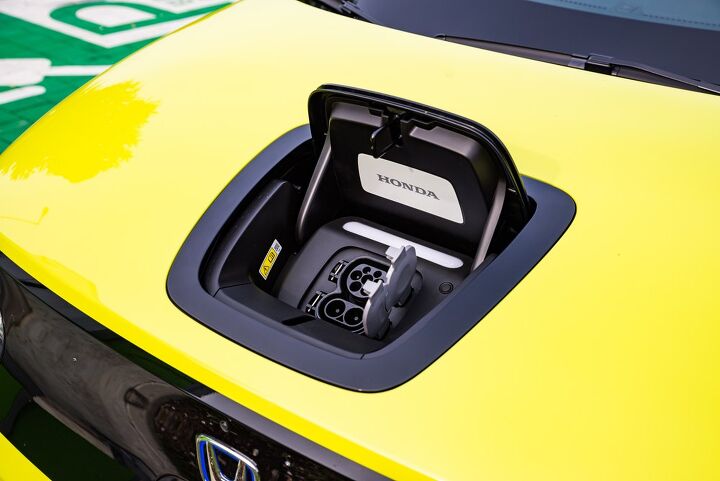
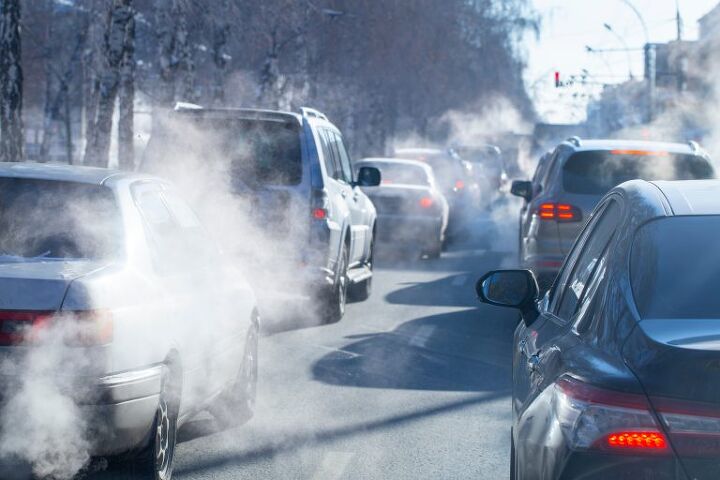
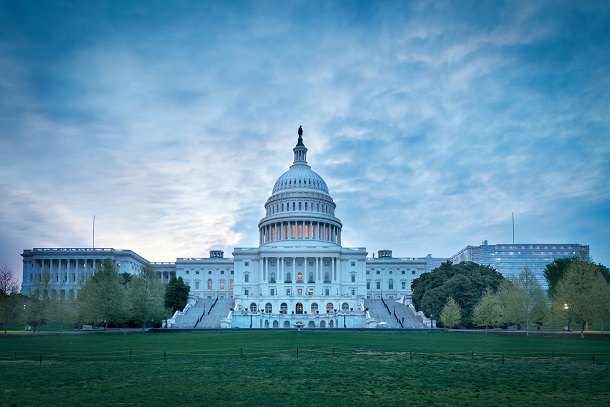
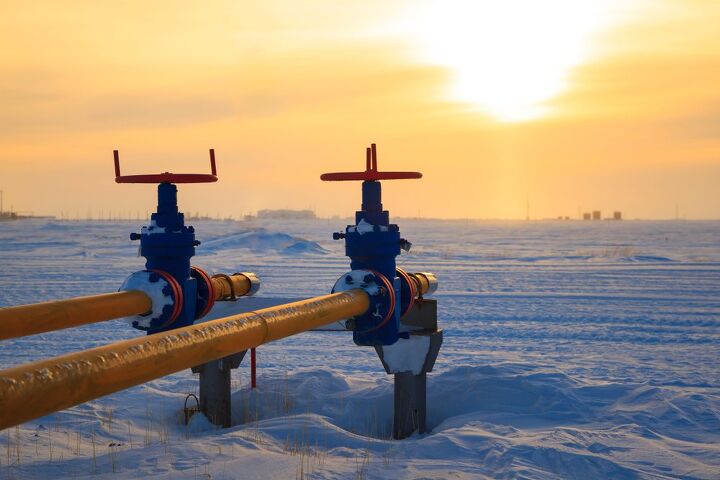

![Auto Lobbyists Attempt to Soften USMCA, Look to White House [UPDATED]](https://cdn-fastly.thetruthaboutcars.com/media/2022/07/19/9146752/white-house-invites-auto-execs-to-endorse-build-back-better.jpg?size=720x845&nocrop=1)
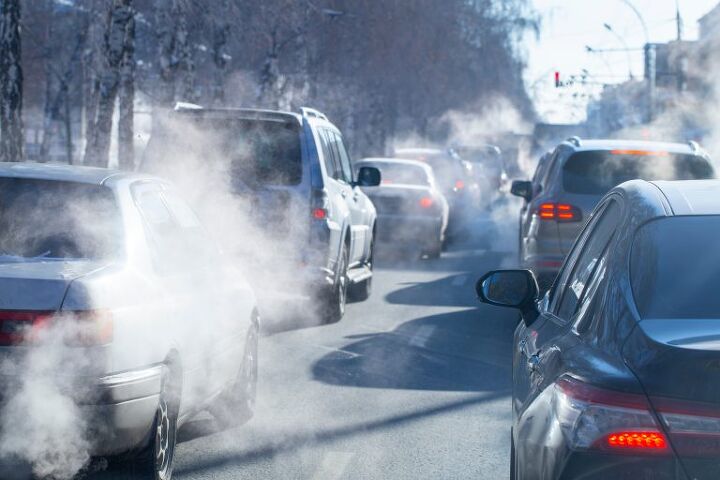
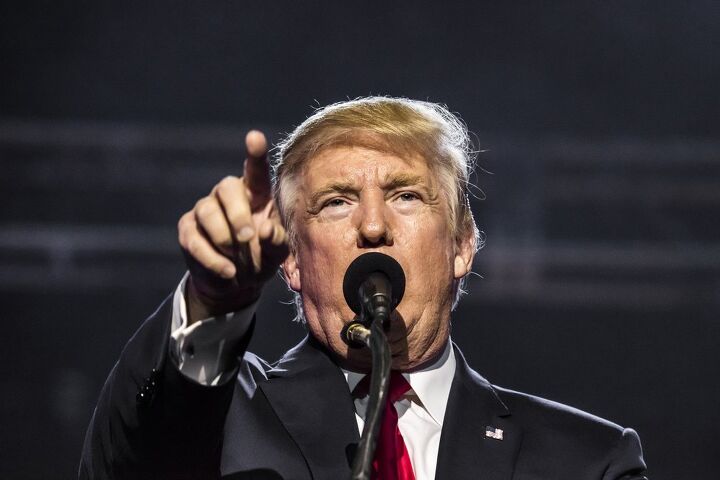
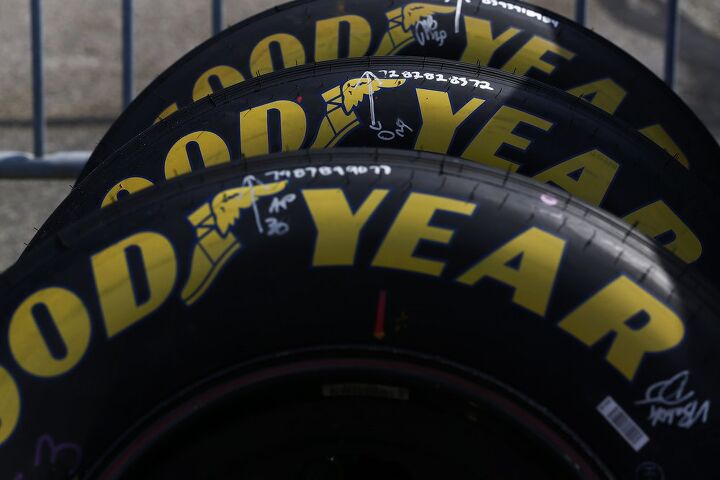












Recent Comments